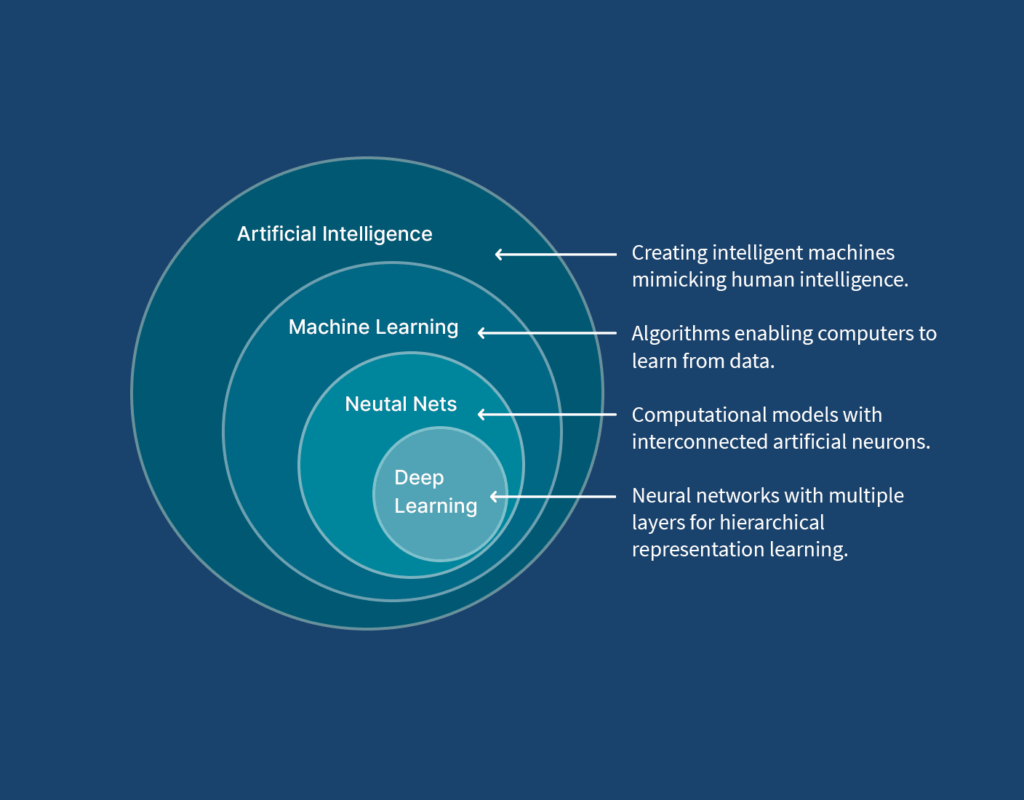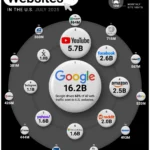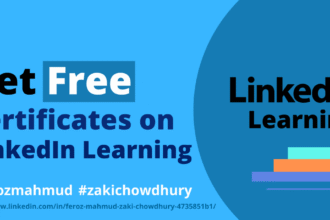Introduction: The Revolution of Artificial Intelligence in Modern Marketing
In today’s rapidly evolving digital landscape, marketers face an unprecedented challenge: understanding and leveraging cutting-edge technologies to stay competitive. Among the most transformative technologies reshaping the marketing world are machine learning and deep learning. These powerful subsets of artificial intelligence are no longer confined to tech giants and research laboratories—they’re now essential tools for marketers seeking to optimize campaigns, personalize customer experiences, and maximize return on investment.
As online learning platforms continue to democratize access to technical knowledge, marketers worldwide are turning to free online learning resources to understand these technologies. Whether you’re exploring online learning courses on LinkedIn Learning, Coursera, or edX, grasping the fundamental differences between machine learning and deep learning has become crucial for modern marketing success.
This comprehensive guide will demystify these technologies, explain their practical applications in marketing, and provide actionable insights to help you harness their power for your campaigns. By the end of this article, you’ll understand not just the technical distinctions, but also how to strategically implement these tools to drive business results.
Understanding Machine Learning: The Foundation of Intelligent Marketing

What is Machine Learning?
Machine learning represents a paradigm shift in how computers process information and make decisions. Unlike traditional programming where developers explicitly code every rule and condition, machine learning enables systems to learn from data, identify patterns, and make decisions with minimal human intervention.
According to IBM’s comprehensive definition, machine learning is “a branch of artificial intelligence (AI) and computer science which focuses on the use of data and algorithms to imitate the way that humans learn, gradually improving its accuracy.”
For marketers leveraging online education learning through platforms like Codecademy or Alison online learning, understanding this fundamental concept opens doors to powerful analytical capabilities. Machine learning algorithms can process vast amounts of customer data, predict behaviors, and automate decision-making processes that would take humans countless hours to complete.
Types of Machine Learning Relevant to Marketing
Supervised Learning: This approach uses labeled data to train algorithms. In marketing contexts, supervised learning powers recommendation engines, customer segmentation, and predictive analytics. For example, platforms like Amazon use supervised learning to predict which products you’re likely to purchase based on your browsing and purchase history.
Unsupervised Learning: Without pre-labeled data, unsupervised learning algorithms discover hidden patterns in data. Marketers use this for customer segmentation, identifying market trends, and discovering previously unknown customer behaviors. Tools available through online learning programs teach these techniques to professionals seeking competitive advantages.
Reinforcement Learning: This type involves algorithms learning through trial and error, receiving rewards for correct actions. In marketing, reinforcement learning optimizes ad bidding strategies, email send times, and content recommendations.
Machine Learning Applications in Marketing Today
According to Salesforce’s State of Marketing Report, 84% of marketers use AI and machine learning technologies, with applications including:
Customer Segmentation and Personalization: Machine learning algorithms analyze customer data from multiple touchpoints to create highly targeted segments. Marketers who’ve completed online learning courses in data analysis can leverage tools like Google Analytics 4, which employs machine learning to provide predictive metrics and audience insights.
Predictive Analytics: By analyzing historical data, machine learning models forecast customer lifetime value, churn probability, and purchase likelihood. Companies using these insights report up to 20% increases in marketing ROI, according to McKinsey’s research.
Dynamic Pricing Optimization: E-commerce platforms use machine learning to adjust prices in real-time based on demand, competition, inventory levels, and customer behavior—a strategy that can increase revenue by 10-30%.
Content Recommendation Systems: Platforms like Netflix and Spotify use machine learning to analyze user behavior and recommend relevant content, keeping users engaged and reducing churn rates.
Deep Learning: The Advanced Frontier
Defining Deep Learning and Its Unique Characteristics
Deep learning represents a more sophisticated subset of machine learning, inspired by the structure and function of the human brain. These artificial neural networks contain multiple layers (hence “deep”) that progressively extract higher-level features from raw input.
As explained by MIT Technology Review, deep learning excels at processing unstructured data like images, video, audio, and natural language—capabilities particularly valuable for modern marketing applications.
Professionals pursuing learning python skills through python learning online courses often encounter deep learning frameworks like TensorFlow and PyTorch. These tools, once reserved for specialists, are now accessible through free online courses on platforms including edX and Coursera, enabling marketers to experiment with cutting-edge technologies.
The Architecture of Deep Learning Systems
Deep learning networks consist of interconnected nodes (neurons) organized in layers:
Input Layer: Receives raw data (images, text, audio)
Hidden Layers: Multiple layers that process and transform data, each extracting increasingly complex features
Output Layer: Produces final predictions or classifications
This layered architecture enables deep learning systems to automatically discover the representations needed for detection or classification, eliminating the need for manual feature engineering required in traditional machine learning.
Deep Learning Applications Transforming Marketing
Visual Recognition and Brand Monitoring: Deep learning powers image recognition systems that can identify brand logos, products, and even sentiment in social media images. According to Gartner’s research, brands using visual recognition technology for social monitoring achieve 35% better engagement rates.
Natural Language Processing (NLP): Deep learning revolutionized how computers understand human language. Marketing applications include:
- Sentiment analysis of customer reviews and social media
- Chatbots and virtual assistants providing 24/7 customer service
- Automated content generation and optimization
- Voice search optimization
Tools like Google Translate demonstrate deep learning’s language capabilities, while marketers can learn these technologies through english learning online and learning spanish online platforms that increasingly incorporate AI-driven instruction.
Programmatic Advertising: Deep learning algorithms analyze billions of data points to optimize ad placements in real-time, improving click-through rates by up to 50% compared to traditional methods, as reported by eMarketer.
Video Content Analysis: With video content dominating social media, deep learning enables automatic video analysis, including object detection, action recognition, and automatic highlight generation—capabilities particularly valuable for influencer marketing and user-generated content campaigns.
Key Differences: Deep Learning vs. Machine Learning
Data Requirements and Processing
Machine Learning: Works effectively with smaller, structured datasets (thousands to millions of data points). Requires feature engineering where humans identify relevant characteristics for the algorithm to learn from.
Deep Learning: Requires massive datasets (millions to billions of data points) to achieve optimal performance. Automatically discovers features from raw data, reducing human intervention but increasing computational requirements.
For marketers exploring these technologies through online learning platforms, this distinction has practical implications. Machine learning projects can begin with existing CRM data and relatively modest computing resources, while deep learning initiatives typically require substantial data infrastructure investments.
Interpretability and Explainability
Machine Learning: Generally more transparent and interpretable. Marketers can understand why the algorithm made specific predictions, crucial for regulatory compliance and stakeholder communication.
Deep Learning: Often functions as a “black box,” making highly accurate predictions without clear explanations of the decision-making process. While recent advances in explainable AI are addressing this limitation, interpretability remains a challenge.
According to Harvard Business Review, this interpretability difference significantly impacts marketing adoption, with 67% of marketers citing explainability as a key concern when implementing AI technologies.
Training Time and Computational Resources
Machine Learning: Trains relatively quickly on standard computers. Models can be updated and retrained efficiently as new data becomes available.
Deep Learning: Requires substantial computational power (often GPUs or specialized hardware) and extended training periods (hours to weeks). However, once trained, these models execute predictions rapidly.
Marketers pursuing cpa online learning or cpa australia certifications increasingly encounter these technologies in financial marketing contexts, where the cost-benefit analysis of implementation becomes crucial.
Performance and Accuracy Trade-offs
Machine Learning: Performance plateaus after certain data thresholds. Works exceptionally well for structured data problems and when interpretability is essential.
Deep Learning: Performance continues improving with more data and computational power. Excels with unstructured data (images, text, audio) but may be overkill for simpler marketing tasks.
Research from Stanford University’s AI Index shows that deep learning systems have achieved superhuman performance in specific tasks like image classification, while machine learning maintains advantages in many business analytics applications.
Practical Implementation: Which Technology Should Marketers Choose?
Scenarios Favoring Machine Learning
Customer Churn Prediction: When working with structured customer data (demographics, purchase history, engagement metrics), traditional machine learning algorithms like logistic regression, decision trees, or gradient boosting often provide excellent results with clear interpretability.
Email Marketing Optimization: Machine learning excels at determining optimal send times, subject line testing, and content personalization based on structured subscriber data. Tools available through online learning programs teach marketers to implement these strategies using platforms like Mailchimp and HubSpot.
Lead Scoring: Sales and marketing teams benefit from machine learning’s ability to rank leads based on conversion probability, with clear explanations for sales teams about why specific leads received particular scores.
Budget Allocation: Machine learning models can analyze historical campaign performance to recommend optimal budget distribution across channels, providing transparent recommendations that marketing managers can present to executives.
Scenarios Favoring Deep Learning
Social Media Image Analysis: When monitoring brand presence across visual platforms like Instagram, Pinterest, and TikTok, deep learning’s image recognition capabilities provide unmatched performance in identifying products, logos, and contextual brand mentions.
Conversational AI and Chatbots: Modern customer service chatbots leverage deep learning NLP to understand context, intent, and nuance in customer inquiries. Companies implementing sophisticated chatbots report 30-40% reductions in customer service costs, according to IBM’s research.
Voice Search Optimization: As voice assistants become ubiquitous, deep learning powers the speech recognition and natural language understanding required to optimize content for voice queries. Marketers pursuing language learning online can apply these same technologies to multilingual marketing campaigns.
Video Content Personalization: Streaming platforms and video marketing applications use deep learning to analyze video content frame-by-frame, enabling automatic highlight generation, content recommendations, and targeted advertising placement.
Building Your Marketing AI Skill Set
Essential Learning Paths for Marketers
The democratization of AI education through free online learning platforms has made these technologies accessible to marketers without technical backgrounds. Here’s a structured learning path:
Foundation Level (2-3 months):
- Statistics and data analysis fundamentals through Khan Academy or Coursera
- Introduction to Python learning via Codecademy or python learning online courses
- Marketing analytics fundamentals through LinkedIn Learning
Intermediate Level (3-6 months):
- Machine learning basics through Andrew Ng’s famous course on Coursera
- SQL and database fundamentals for data manipulation
- Marketing automation platforms with AI capabilities
- Tools like Google Analytics 4 with machine learning features
Advanced Level (6-12 months):
- Deep learning specialization through edX or Coursera
- Computer vision and NLP applications
- Implementation projects using real marketing datasets
- Advanced marketing analytics certifications
Platforms like IXL Learning, Scholastic Learning Zone, and Doodle Learning demonstrate how adaptive learning technologies use machine learning to personalize education—the same principles marketers apply to customer experiences.
Recommended Resources and Platforms
Coursera (www.coursera.org): Offers comprehensive AI and machine learning courses from top universities, including Stanford’s Machine Learning course and Deep Learning Specialization.
edX (www.edx.org): Provides MIT and Harvard courses on AI, with professional certificates in machine learning and artificial intelligence.
LinkedIn Learning (www.linkedin.com/learning): Features practical, business-focused courses on marketing AI applications, data analysis, and emerging technologies.
Kaggle (www.kaggle.com): Offers free micro-courses on machine learning, data visualization, and practical implementation, plus datasets for hands-on practice.
Google AI (ai.google/education): Provides free educational resources, including Machine Learning Crash Course with TensorFlow APIs.
For Australian marketers, online courses Australia through institutions like Flinders Learning Online and specialized programs through CPA Australia offer region-specific perspectives on implementing these technologies.
Practical Skills to Develop
Data Literacy: Understanding data sources, quality, privacy regulations (GDPR, CCPA), and ethical considerations forms the foundation for all AI marketing initiatives.
Tool Proficiency: Familiarity with marketing technology platforms that embed AI capabilities, including:
- Google Analytics 4 (predictive analytics)
- Adobe Sensei (creative automation)
- Salesforce Einstein (CRM intelligence)
- HubSpot (marketing automation AI)
Strategic Thinking: Beyond technical skills, marketers need to identify opportunities where AI provides competitive advantages and ROI that justifies implementation costs.
Real-World Success Stories: Deep Learning and Machine Learning in Action
Case Study: Stitch Fix’s Fashion Recommendation Engine
Stitch Fix, the personal styling service, combines machine learning and deep learning to revolutionize fashion retail. Their system uses:
Machine Learning: Analyzes structured customer data (size, budget, style preferences) to match clients with appropriate items.
Deep Learning: Processes visual data from clothing images to understand style attributes, patterns, and aesthetic compatibility.
Result: According to Stitch Fix’s public reports, their AI-driven approach achieved 80% customer retention rates and reduced inventory waste by 30%, demonstrating how combining both technologies creates superior outcomes.
Case Study: Spotify’s Discover Weekly
Spotify’s legendary Discover Weekly playlist combines multiple AI approaches:
Collaborative Filtering (machine learning): Analyzes listening patterns across millions of users to identify songs enjoyed by people with similar tastes.
Natural Language Processing (deep learning): Scans blog posts, reviews, and articles to understand how people describe music.
Audio Analysis (deep learning): Directly analyzes raw audio files to identify similar sonic characteristics.
This multi-layered approach generates personalized playlists for over 100 million users weekly, driving a 40% increase in user engagement, as reported by Spotify’s engineering blog.
Case Study: Sephora’s Visual Artist Chatbot
Beauty retailer Sephora deployed a chatbot using deep learning NLP to provide personalized product recommendations and makeup tutorials. The bot:
- Understands natural language questions about products
- Provides personalized recommendations based on conversation history
- Offers tutorials and tips based on customer goals
Results: 11% higher conversion rate for chatbot users compared to website-only visitors, according to Retail Dive’s analysis.
Case Study: The Washington Post’s Heliograf
The Washington Post’s AI technology, Heliograf, uses machine learning to automate reporting on specific story types:
- Sports scores and recaps
- Election results
- Financial reporting
- Breaking news alerts
While not replacing journalists, the system produced over 850 articles in its first year, freeing reporters for investigative work. This demonstrates how machine learning augments rather than replaces human creativity—a key consideration for content marketers.
The Future: Emerging Trends and Considerations
Convergence of Technologies
The future of marketing AI involves blended learning approaches that combine multiple techniques:
Federated Learning: Trains AI models across decentralized devices while preserving privacy—critical as cookie-based tracking diminishes.
Transfer Learning: Applies knowledge from one domain to another, enabling smaller companies to leverage pre-trained models without massive datasets.
AutoML: Automated machine learning platforms democratize AI implementation, requiring less technical expertise—perfect for marketers pursuing my online learning journeys without deep technical backgrounds.
Ethical Considerations and Responsible AI
As AI becomes central to marketing, ethical considerations demand attention:
Bias and Fairness: Machine learning models can perpetuate biases present in training data, potentially leading to discriminatory targeting or messaging. Companies like IBM and Google now provide AI fairness toolkits to address these concerns.
Privacy and Consent: With regulations like GDPR and CCPA, marketers must ensure AI systems respect privacy boundaries and obtain proper consent for data usage.
Transparency: Consumers increasingly demand to know when they’re interacting with AI systems and how their data influences personalization.
According to Edelman’s Trust Barometer, 67% of consumers want companies to be transparent about AI usage, making ethical implementation a competitive differentiator.












